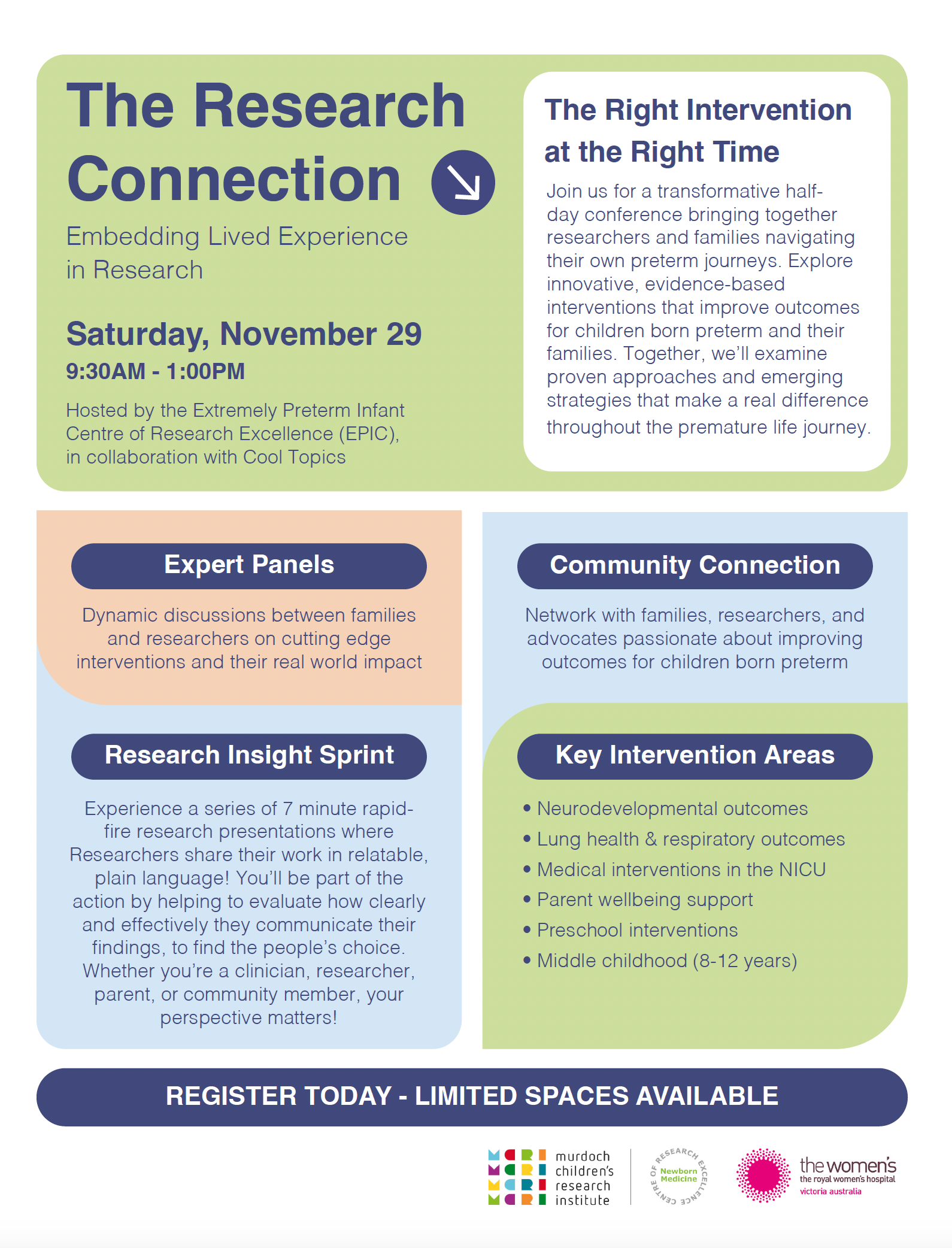Don’t miss Australia’s largest neonatology conference in November 2025, presented by the Women’s. You'll hear from world-leading clinical researchers as they discuss cutting-edge innovations that are improving the care of babies.
Main conference:
Date and time: Thursday 27 and Friday 28 November 2025, 8:30am–5pm.
Location: The W Melbourne, 408 Flinders Lane, Melbourne.
Optional workshops:
Date and time: Saturday 29 November 2025, 9:30am–1pm.
Locations: The optional workshops are held at the Royal Women's Hospital in Parkville.
-
Lung Ultrasound Workshop
Conference Room A, Ground floor of the Women's
Facilitated by Dr Sheryle Rogerson and Dr Arun Sett
Free for conference attendees – registration required -
Resuscitation Workshop
Rooms 7D & E, Level 7 of the Women's
Facilitated by Dr Marta Thio-Lluch
Free for conference attendees – registration required -
Research Connections: Embedding Lived Experience in Research
Conference Rooms B & C, Ground floor of the Women's
Free event for all – does not require a Cool Topics registration
Who should attend?
The conference draws health professionals from across Australia, New Zealand and beyond, working in neonatal care, including:
- nurses
- neonatologists, paediatricians and trainees
- allied health professionals.
Keynote speakers
The 2025 program features distinguished international and national speakers:
- Professor Anup Katheria (San Diego, USA)
- Professor Richard Martin (Cleveland, USA)
- Professor Neena Modi (London, United Kingdom)
- Professor Tobias Strunk (Western Australia)
- Professor Ju-Lee Oei (New South Wales).
Program and Workshops
Cool Topics 2025 offers an exceptional professional development opportunity for neonatal health professionals.
- Download the full program
- Optional hands-on workshops on Saturday 29 November will cover:
- Neonatal resuscitation
- Lung ultrasound
- Embedding lived experience in research
Ticket pricing
Senior Medical Staff
- $380 per day
- $650 for full 2-day conference
All other registrants
- $280 per day
- $375 for full 2-day conference
Registration

Read about last year’s event: Cool Topics 2024: Conference discusses strategies to improve care for our youngest and sickest patients.
Downloads and Related Topics
Date reviewed: 23 October 2025
Date reviewed: 23 October 2025
